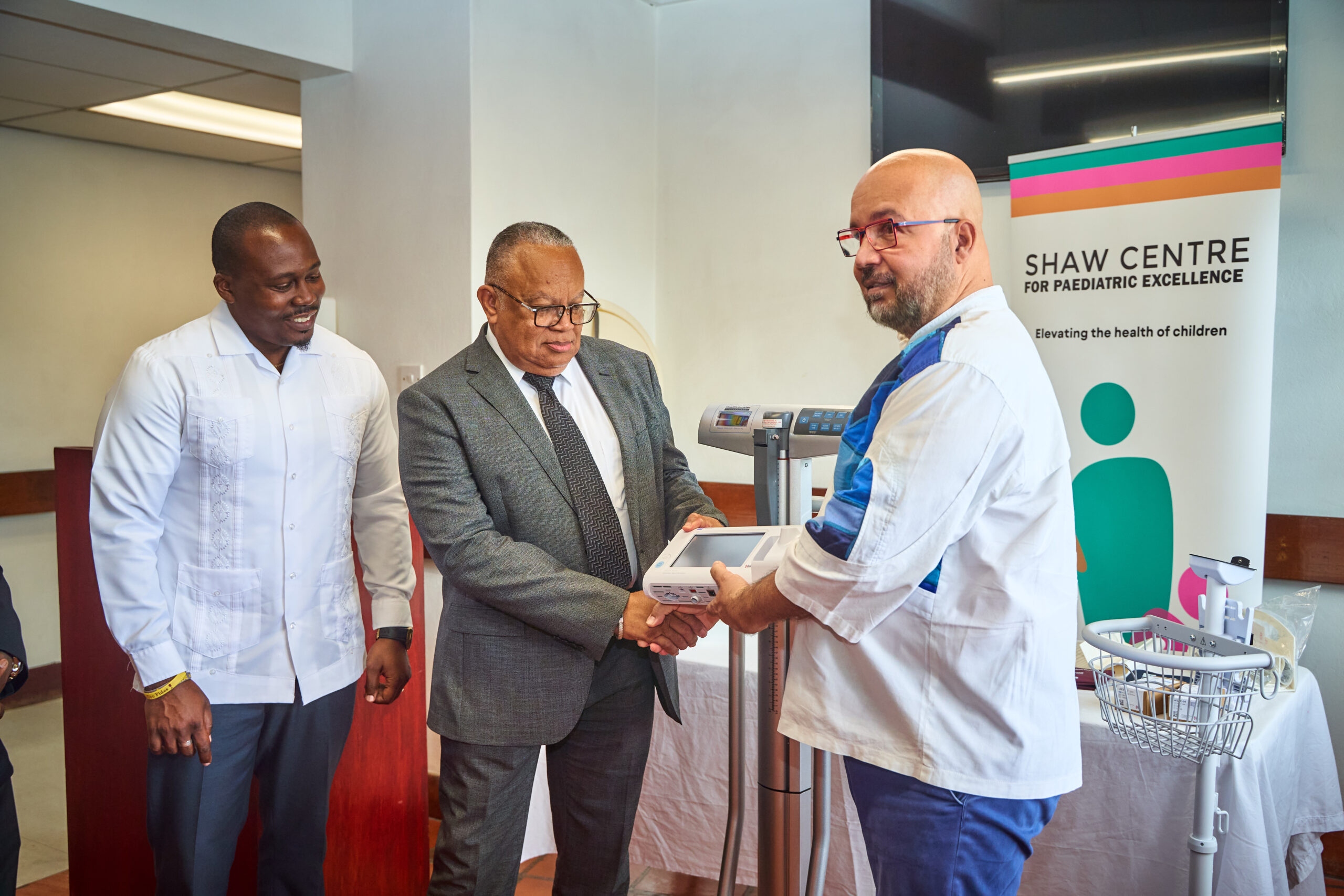Emphasizing Early Childhood Health Monitoring for Timely Detection of Developmental Issues

March 29, 2024
Health authorities stress the importance of early childhood health tracking to detect issues early. Refocused monitoring can identify developmental challenges in children, improving outcomes. Medical equipment donation promotes this initiative.
Health authorities are advocating for a renewed emphasis on tracking children’s health conditions in their early years to identify health issues early in their development.
As pieces of medical equipment from the Queen Elizabeth Hospital’s Shaw Centre for Pediatric Excellence (SCPE) were being donated to the Frederick ‘Freddie’ Miller Polyclinic, Glebe, St George on Thursday, SCPE Barbados Director Dr Clyde Cave said there needed to be a refocused approach to monitoring early health challenges in children.
Far too often, parents would only take their children to be accessed during specific times of their early life, particularly surrounding their primary school enrolment, or when preparing to set the 11-plus examination, he told reporters.
“I think we are missing an area of monitoring the development of our children, which can be done by a trained person whenever you see them, but in our immunisation schedule we see them in the first year and then the second year and then we don’t see them again until four years of age. So between two and three, there are things there that can be picked up on a screen,” Dr Cave said.
“For immunisations, we don’t see them again before 11-plus, and there are things that are going on there that straddle health and education, school health systems, and those kinds of areas which are, perhaps to some parents, nontraditional medical issues.”
Dr Cave added that while some physical and health issues in children might manifest early on and have an impact on their learning abilities, parents far too frequently avoid seeking an examination.
“The first place you think of taking your eight-year-old child who may have had a change in school performance, may not often be the polyclinic or the paediatrician, but oftentimes that is where we can start the assessment. It could be something physical like hearing or vision, it could be something that we are now detecting like dyslexia or attention deficit disorder.
“In the younger ones, we are seeing more children on the autism spectrum. We don’t want to wait until 11-Plus when that problem has become ingrained and so difficult that change gets harder. We want a spectrum of monitoring children who are well or have identified problems so that we can make every Barbadian child the best that they can be,” he said.
Deputy Chief Medical Officer Dr Arthur Phillips said early signs of noncommunicable diseases (NCDs) and other health issues more commonly found in adults can often be detected in young children.
He said: “While it is true that most NCDs still present in older persons, there are things that we can detect in children that would allow us to intervene and make a difference. In particular issues around potentially detecting children who may have raised blood pressure. Very uncommon but possible. So if we do detect raised blood pressure in children, we can try to understand the causes and intervene early.
“That is one of the ways in which this donation may assist, and then of course our continued interest in childhood obesity. This equipment allows us to continue and strengthen our effort in terms of monitoring child development.”
Minister of Health Senator Dr Jerome Walcott, praised SCPE – the government’s partnership with Toronto’s Hospital for Sick Children (SickKids) – for its donation of medical equipment and resources to primary healthcare institutions.
“There was a time where in primary healthcare in communities we were second to only Cuba in the region. In terms of our reach and the involvement of medical staff and nursing staff in the communities. We’ve recognised that we need to refurbish and probably expand some of these facilities to do greater outreach and provide greater services in the primary care setting,” he said.
“We need equipment, we need extra human resources and trained resources, and of course we need research. This project covers all of those.”
(SB)


